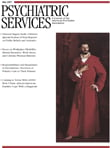Wake-up Call: The Political Education of a 9/11 Widow
On September 11, 2001, Kristen Breitweiser's husband, a financial analyst, died in the World Trade Center attack. Wake-up Call chronicles her evolution from homemaker and apolitical wife to a hard-hitting activist who lobbies successfully for an independent 9/11 commission and less successfully for accountability and change in U.S. homeland security.
Although it is tempting to focus on Breitweiser's unflinching portrait of the frustrating political process she witnesses, it is more interesting to account for Breitweiser's resilience. Resilience researchers have described sets of risk and protective factors that impact an individual's ability to bounce back after adversity at the level of the individual, family, community, and ecosystem ( 1 ). Connections to caring and competent others, cognitive and self-regulation skills, a positive self-image, and the desire to impact the environment in a positive manner may be especially crucial for recovery from adversity ( 2 ). Breitweiser's account exemplifies these qualities.
Breitweiser's losses after 9/11 are devastating, and her initial response is to sink into isolation, buttressed by fear, rage, and disengagement. Her "wake-up call" is provoked by a worried neighbor's insistence that she attend a survivors' meeting, where she begins to express concern. She is able to channel cognitive strengths—such as intelligence, love of argument, and fine use of language—fear, rage, and legal training into effective activism. She begins to regulate her intense emotions through late-night phone calls with three other 9/11 widows. "[W]hen four women get on the phone and cry together, their crying soon turns into anger, which then turns into humor, which then ends up in distraction and major productivity." Other coping methods include affectionate contact with her daughter and her dog and time in the natural world. Despite her rejection of the idyllic bubble that she had inhabited ostrich-like with her husband, she keeps their connection alive by writing letters to him after his death.
Breitweiser's close family relationships are protective, both because of the support she receives and because of the values she has absorbed. Despite intense adolescent conflict, she identifies strongly with her mother, whose powerful sense of purpose and stoicism impelled her to continue to cook for her family as she was dying of cancer. Although Breitweiser resents the intrusions into family life occasioned by her father's long career as small-town mayor, it seems likely that his dedication to public service fueled her own. She connects powerfully with her new friends and continues to maintain close friendships with bonds of shared pain and also with appreciation of one another's skills, strengths, vulnerabilities, and values—most keenly the strong desire to protect their children's future. Living inside her isolated and self-sufficient bubble before September 11, her activism, in contrast, connects her to many communities, less perfect but far more real.
Our field has traditionally paid scant attention to those who endure and flourish without our help. But we have much to learn from them. For this reason, and because it is a highly engrossing and inspiring read, I highly recommend Wake-up Call .
1. Stein H: Mentalization: a pathway to resilience, in Handbook of Mentalization-Based Therapy. Edited by Allen JG, Fonagy P. Somerset, NJ, Wiley, 2006Google Scholar
2. Masten AS, Powell JL: A resilience framework for research, policy, and practice, in Resilience and Vulnerability: Adaptation in the Context of Childhood Adversities. Edited by Luthar SS. Cambridge, United Kingdom: Cambridge University Press, 2003Google Scholar



